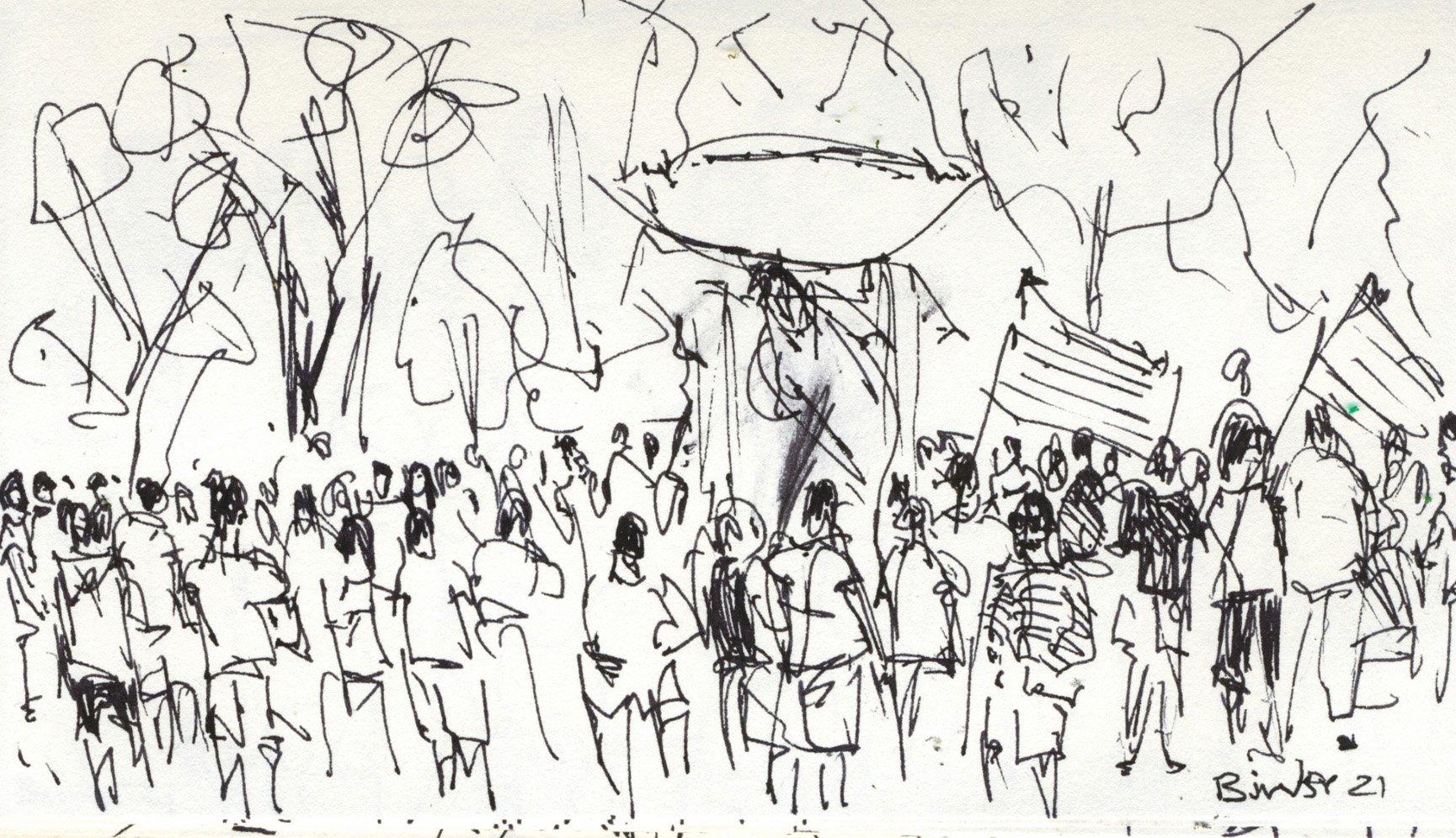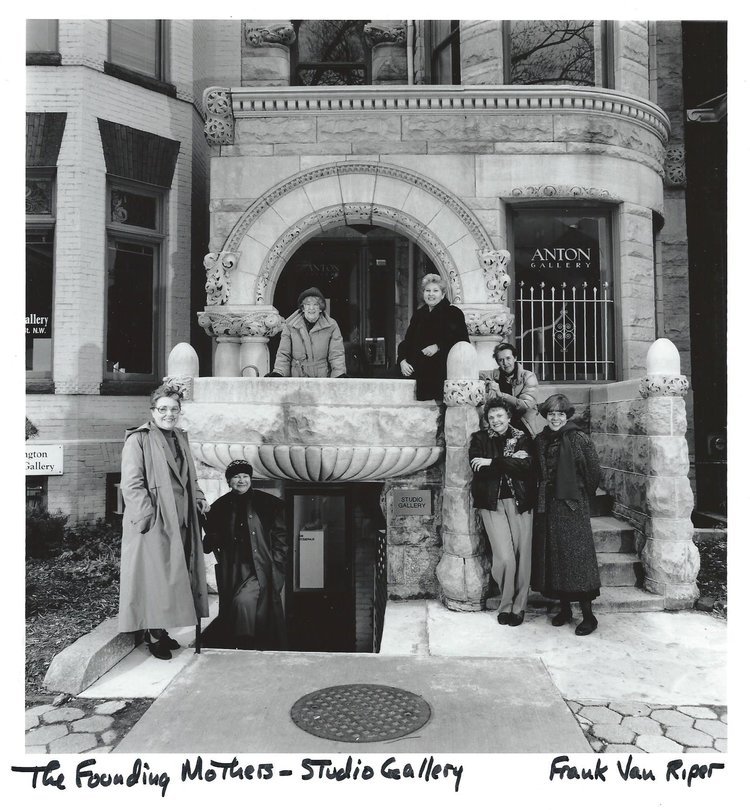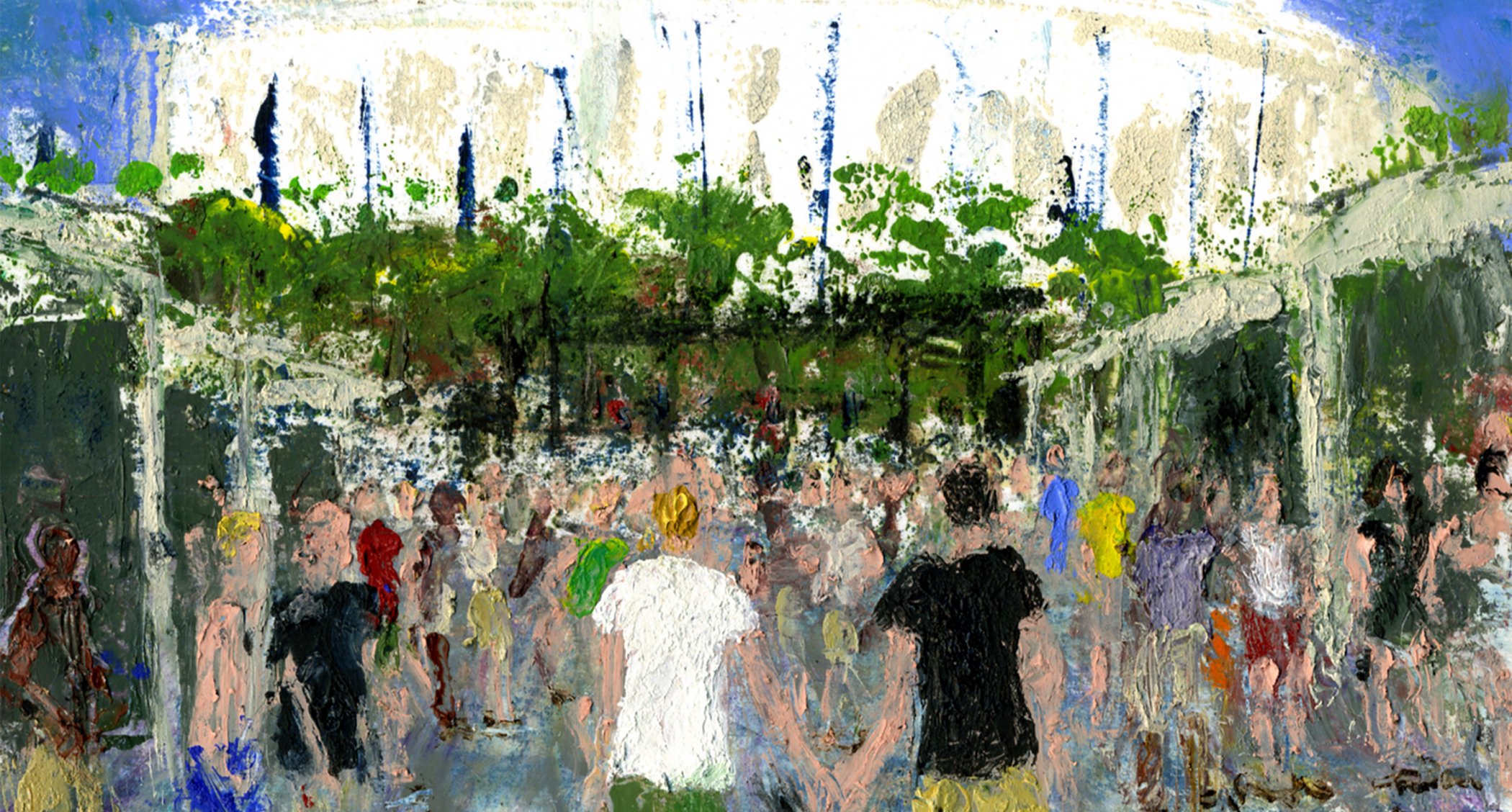This piece features work by Studio Gallery artists Gordon Binder and Jennie Lea Knight
What attracted me first to Studio Gallery was its history as a female-founded art cooperative—growing up as a young girl with an interest in art, it was often difficult to see myself in the artists I admired, when the vast majority of those I learned about were men. Now, as a summer intern here at Studio Gallery, and a local resident of the Washington, DC metro area, I’ve learned even more about the gallery, its founders, and Dupont Circle as a whole that has opened my eyes to the diversity of the art scene here in my hometown.
Jennie Lea Knight founded Studio Gallery in Alexandria, Virginia in 1956, along with fellow artists Nancy Lloyd and Vera Knight. At the time, it was the first professional art gallery in Virginia, and today it is the longest-running artist cooperative in DC. From its inception, Studio Gallery prioritized the work of young artists, especially those who were underrepresented in the art world, such as women and minorities. For those who did not fit into the box of what it meant to be an artist (i.e. being straight, white, and male), Studio Gallery offered a space to show their art and find a flourishing community of artists like themselves.
Bluescape by Jennie Lea Knight
Emily Sleeping by Jennie Lea Knight
As Pride Month comes to a close, I’ve been reflecting quite frequently on my own identity as a woman involved in the DC art scene. For the first time in my life, I feel as if I am fully myself—I attended Pride, and I was able to celebrate my queer identity with those like me. It was wonderful to finally be able to experience a sense of belonging, and it prompted me to think that this must have been what it was like to be involved with Studio Gallery during a time in which LGBTQ+ identities were not so openly talked about and celebrated. Upon undertaking a bit of archival research, I discovered that Jennie Lea Knight herself was a lesbian—and it truly felt like a wonderful full-circle moment, to realize that I am now working at a gallery founded by a female artist that I can identify with in more ways than one. Knight’s success as an artist, a curator, and a gallery owner who was able to champion and uplift minority artists is incredibly inspiring, and I am proud to say that Studio Gallery continues to carry on her legacy in this way.
Pride at Dupont Circle by Gordon Binder
D.C.’s first Capital Pride Parade did not take place until 1975, many years after Studio Gallery opened its doors. Although the gallery had not yet made DC its home, its existence testifies to the presence of LGBTQ+ artists in the DC area long before the progressive awakenings of the 1970s. During this decade of prolific change, the Dupont Circle neighborhood (where Studio Gallery is now located) became a hotbed of artistic creation and liberal politics. Bohemian artists made their home here, as they pushed the boundaries of art and often concurrently worked in or supported political activism. Thriving art galleries and collectives popped up in tandem with LGBTQ+ business and community centers, cementing the neighborhood’s progressive, artistic influence. For example, Lambda Rising, an independent gay bookstore founded by Deacon Maccubbin in 1974, was the very first sponsor of Capital Pride, in addition to being the city’s very first “out-identified, non-bar business in Washington” (“Dupont Circle - Rainbow History”). This era in Dupont Circle’s history is incredibly well-known, but times have changed, and although the neighborhood is still considered a center of LGBTQ+ life and culture, expansive gentrification has undoubtedly altered the local landscape.
Lambda Rising closed in 2010, as have many of the small, independent galleries and other LGBTQ+ businesses. Rent and the cost of living continues to increase, making it difficult for the galleries that have survived thus far to remain open. Studio Gallery, being an entirely artist-owned cooperative, is becoming a bit of a rare breed in our modern world. But, we are still here, and we are continuing to operate based on the principles of Jennie Lea Knight and the “Founding Mothers.”
The “Founding Mothers” at Studio Gallery’s Dupont Circle location
The gallery’s cooperative nature allows it to focus on uplifting the voices of local artists, especially minority artists, and gives them true artistic freedom to discover and experiment. We remain a space of safety, belonging, and artistic experimentation for the LGBTQ+ community, and I can attest to that, having gotten to know and interact with many of the member artists, and to learn about their amazing work and artistic processes. As Jennie Lea Knight said in a 1979 interview, “I keep painting until there is nothing more to say. I’m not really interested in how correct the cat looks or anything of that sort. I’m only interested in whether the feelings that I see when I look at the animal are evident in the painting” (Images of the 70’s). Studio Gallery creates a space for our artists to put what they see, what they want to say, and how they feel into their work, whatever this may be. Times are constantly changing, but Jennie Lea Knight’s philosophy of uplifting artists, their work, and what they want to say, remains.
Pride Under Capitol Dome by Gordon Binder
Sources:
“Dupont Circle - Rainbow History.” Dupont Circle: LGBT Walking Tour , rainbowhistory.org/wp-content/uploads/2022/10/rainbowhistory_dupont_03-1.pdf. Accessed 29 June 2023.
Images of the 70’s: 9 Washington Artists. Corcoran Gallery of Art, 1980.
By staff contributor Caroline Finken.







